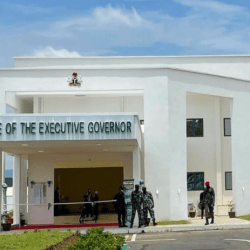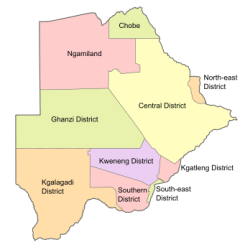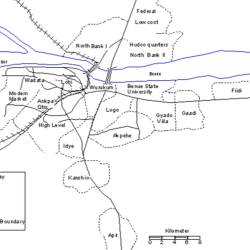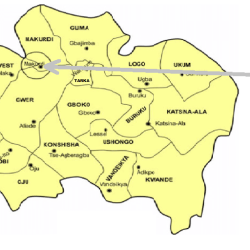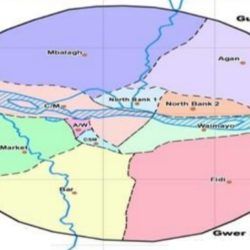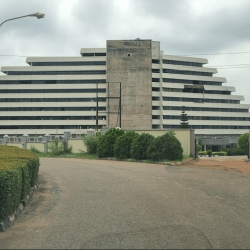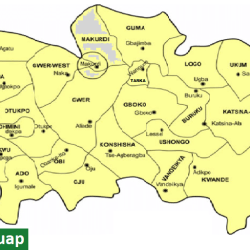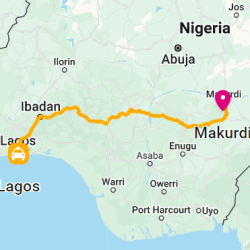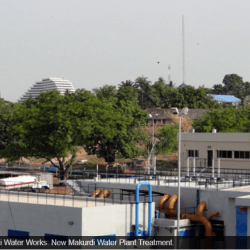A relentless nine-hour downpour in Makurdi metropolis on Monday led to widespread flooding, affecting key areas such as Gyado Villa, Wadata, Wurukum, Achussa, and North Bank. The torrential rain, which started around 3 a.m. and continued until noon, caused rivers to overflow, displacing hundreds of residents and wreaking havoc across multiple neighborhoods.
The hardest-hit areas were riverine communities, where residents like Tondo from Wadata scrambled to save their belongings as the floodwaters rose. “We thought the rain would pass quickly, but by 7 a.m., when it was clear it wasn’t stopping, we began moving important items like documents and food,” Tondo recounted. Despite warnings to evacuate, many residents chose to stay, hoping the floodwaters would subside.
Government Response and Relief Efforts in Benue State
Benue State’s Emergency Management Agency (SEMA) has swiftly responded to the crisis, with Executive Secretary Mr. James Iorpuu confirming that aid is being distributed in camps set up in Wadata and Gaadi. “We are providing food, mattresses, and other essentials to the victims,” Iorpuu stated. He urged residents in flood-prone areas to relocate to safer zones to prevent further losses.

Governor Hyacinth Alia had previously set up a technical committee for rapid flood response, which has been active in distributing relief materials to the displaced. The government’s efforts come in the wake of warnings from federal agencies about the risks of major flooding in towns along riverbanks, with calls for evacuations being echoed by state governments.
Kogi State Faces Escalating Crisis as Flooding Submerges Communities
Meanwhile, in Kogi State, the situation is even more dire, with over 200 communities submerged and nearly two million people displaced across nine local government areas, including Kogi, Lokoja, Adavi, Ofu, Ajaokuta, Idah, and Ibaji. The state’s Commissioner for Information and Communications, Kingsley Fanwo, has described the unfolding disaster as a humanitarian crisis, stressing the urgent need for federal and international assistance.

“The National Emergency Management Agency (NEMA) must act now; we are overwhelmed,” Fanwo said during a press conference. He noted that the state has set up 68 internally displaced persons (IDP) camps to accommodate those affected, but the sheer scale of the disaster is straining resources. “Although we’ve avoided casualties due to our early warning system, the destruction of critical infrastructure, including schools and hospitals, is heartbreaking,” Fanwo added.
With Kogi State expending significant resources on daily relief efforts, the government is appealing for help from donor agencies, non-governmental organizations, and philanthropists to provide much-needed aid for the displaced population.
Flood Risk Warnings and Future Preparedness
The flooding in both Benue and Kogi states underscores the broader challenges posed by Nigeria’s vulnerability to seasonal floods, particularly for riverine communities. The Federal Government has reiterated its flood risk warnings, urging residents living near major rivers to relocate as the rainy season continues.
In the face of these challenges, state governments are working to improve flood preparedness and response mechanisms. The establishment of early warning systems, better evacuation plans, and the provision of relief camps have proven essential in mitigating the loss of life, although the need for long-term solutions to address infrastructure and housing vulnerabilities remains pressing.
